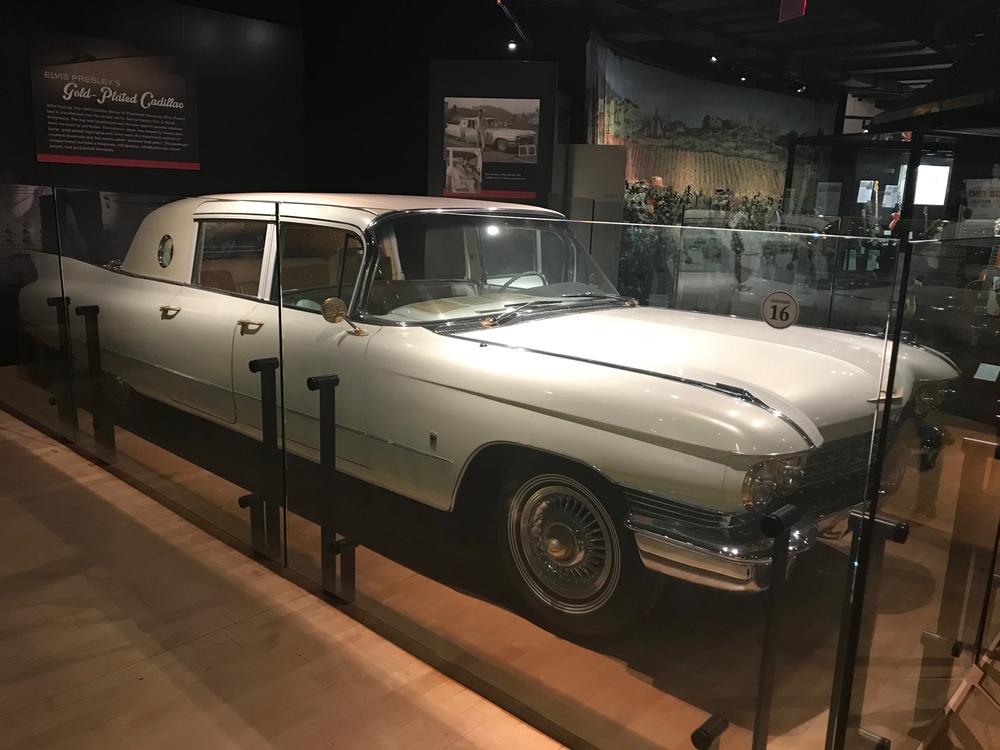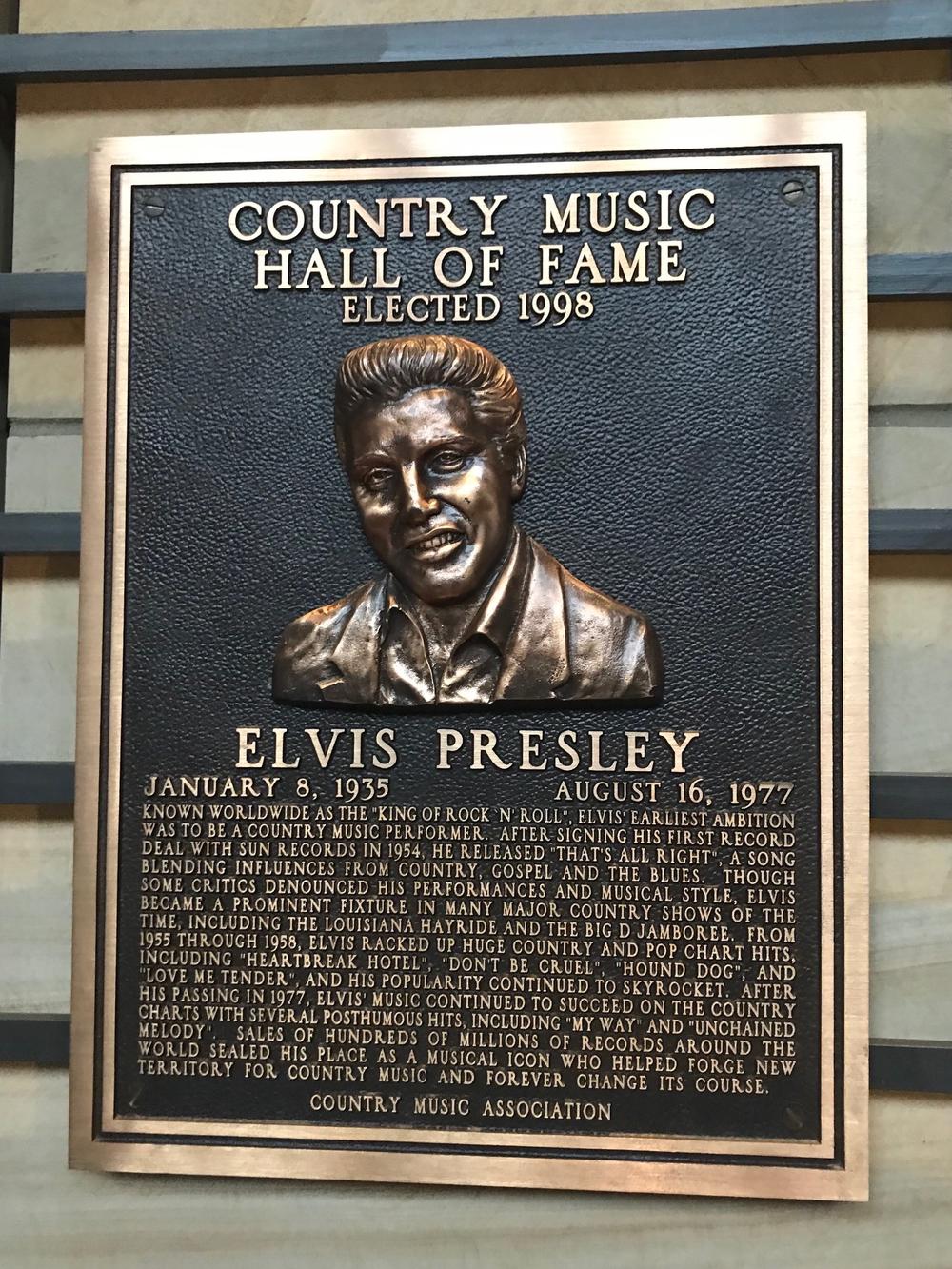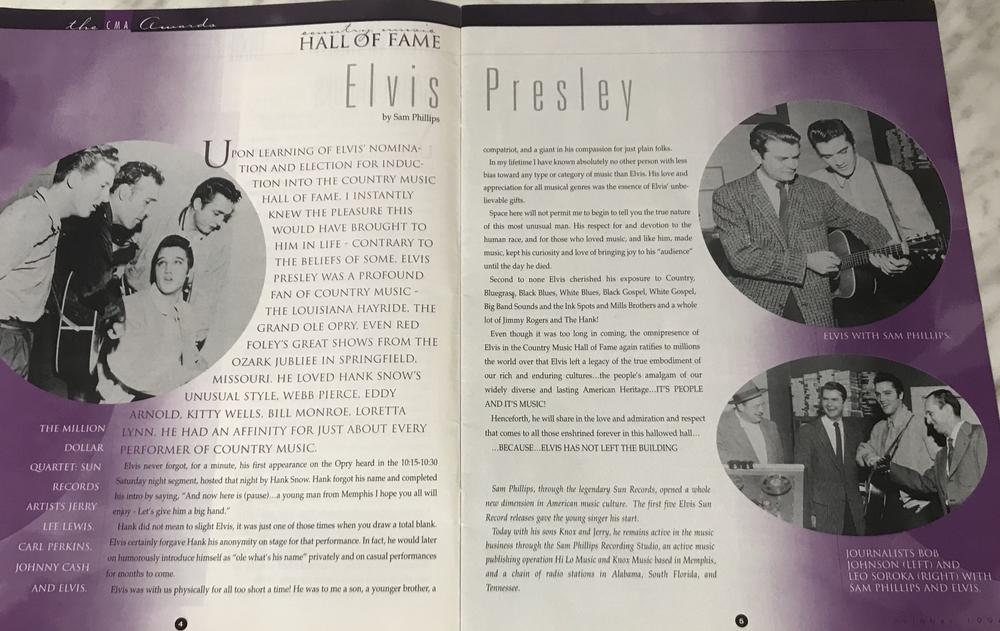
Section Branding
Header Content
Fit For A King - Elvis' Induction Into The Country Music Hall of Fame and Ken Burns' Country Music
Primary Content

In this series of blogs inspired by Ken Burns’ documentary Country Music, which premiered Sunday, September 15 at 8 p.m. and continues this week Sunday, September 22 at 8 p.m. through Wednesday, September 25 at 8 p.m. on GPB, I’m taking a look back at some of my favorite interviews and experiences while working at the Country Music Association (CMA) in Nashville.
The first real “album” I remember owning was Elvis Pure Gold. It was not long after Elvis’ death in 1977 when I asked my grandmother to buy it for me. Unlike most of my nine-year-old friends who were obsessed with either Shaun Cassidy or Andy Gibb, I was totally into his music.
I had been exposed to Elvis’ music through my mother and my aunts, who were in their youth when he first exploded onto the scene in the 1950s. I loved pouring through the collection of albums and 45 singles at my grandmother’s. Additionally, my knowledge of him came through seeing his old movies and concert films on television. However, his passing in 1977 sparked a whole new level of interest in his life for me, and I collected Elvis memorabilia and read everything I could about his career.
My appreciation for his legacy deepened as an adult, so it was the thrill of a lifetime to be a part of the process of his posthumous induction into the Country Music Hall of Fame in 1998. Election to the Country Music Hall of Fame is considered to be the country music industry’s highest accolade. The Country Music Association (CMA), the country music industry's trade organization, created the honor to recognize artists, musicians and other business professionals who’ve made significant contributions to the advancement of country music. The first inductees were announced in 1961—Jimmie Rodgers, Fred Rose and Hank Williams. Also of note, Ken Burns is donating all of the footage and transcripts from Country Music to the Country Music Hall of Fame.

At the time, tribute peformances for the inductees were a part of CMA’s annual awards broadcast. During the months leading up to the show, CMA would notify the inductees or their representatives and make decisions about how the presentations would take place on the broadcast.
The first call I made was to the administrative offices of Graceland, Elvis’ estate in Memphis, to members of the marketing team who regularly came to Nashville to promote it with a booth at Fan Fair, now known as CMA Fest. In addition to the show presentation, we would also have a special section in the CMA Awards program book recognizing each inductee. We decided to approach Sam Phillips about writing a tribute piece to Elvis. As the legendary producer behind Sun Records, Phillips launched a musical revolution with Elvis’ and Johnny Cash’s first recordings, among others. This story plays out in Episode 4, “I Can’t Stop Loving You,” of Country Music. If you missed it, you can find out how to catch up on all of the episodes at GPB Passport.
Phillips was more than happy to oblige, and he seemed genuinely touched by the news. A few days later I received some photos he’d sent from his personal collection to be included in the program book.
“Elvis was with us physically for all too short a time,” Phillips writes in the tribute, which also appears in the October 1998 issue of CMA’s Close Up. “He was to me a son, a younger brother, a compatriot and a giant in his compassion for just plain folks.”
“Space here will not permit me to begin to tell you the true nature of this most unusual man,” Phillips continues. “His respect for and devotion to the human race and for those who loved music, and like him, made music, kept his curiosity and love of bringing joy to his audience until the day he died.”

CMA was also in charge of having the plaques designed for each inductee that are displayed in the Country Music Hall of Fame, so I wrote the inscription on Elvis’ plaque. It’s truly one of the highlights of my career, and I’m grateful to my CMA colleagues who gave me the opportunity to help solidify his place in country music history. Check out these additions to our GPB Goes Country playlist - "That's Alright," "Heartbreak Hotel" and "Kentucky Rain."





